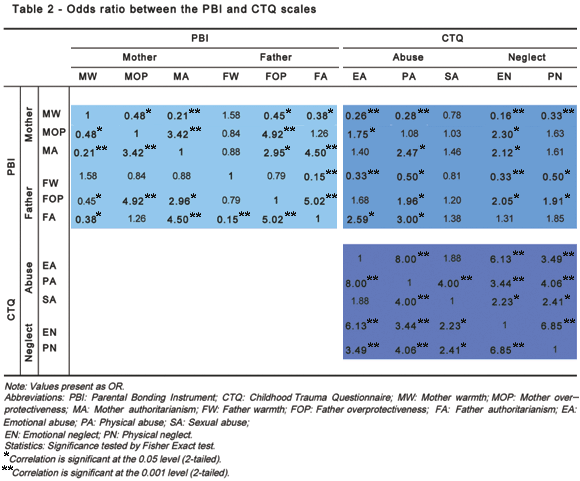OBJECTIVE: The aim of this study is to evaluate the association between childhood trauma and the quality of parental bonding in panic disorder compared to non-clinical controls. METHOD: 123 patients and 123 paired controls were evaluated with the Mini International Neuropsychiatric Interview, the Childhood Trauma Questionnaire and the Parental Bonding Instrument. RESULTS: The Parental Bonding Instrument and the Childhood Trauma Questionnaire were highly correlated. Panic disorder patients presented higher rates of emotional abuse (OR = 2.54, p = 0.001), mother overprotection (OR = 1.98, p = 0.024) and father overprotection (OR = 1.84, p = 0.041) as compared to controls. Among men with panic disorder, only mother overprotection remained independently associated with panic disorder (OR = 3.28, p = 0.032). On the other hand, higher father overprotection (OR = 2.2, p = 0.017) and less father warmth (OR = 0.48, p = 0.039) were independently associated with panic disorder among female patients. CONCLUSION: Higher rates of different types of trauma, especially emotional abuse, are described in panic disorder patients as compared to controls. The differences regarding gender and parental bonding could be explained in the light of the psychodynamic theory.
Object attachment; Anxiety; Environment; Panic disorder; Gender and health




